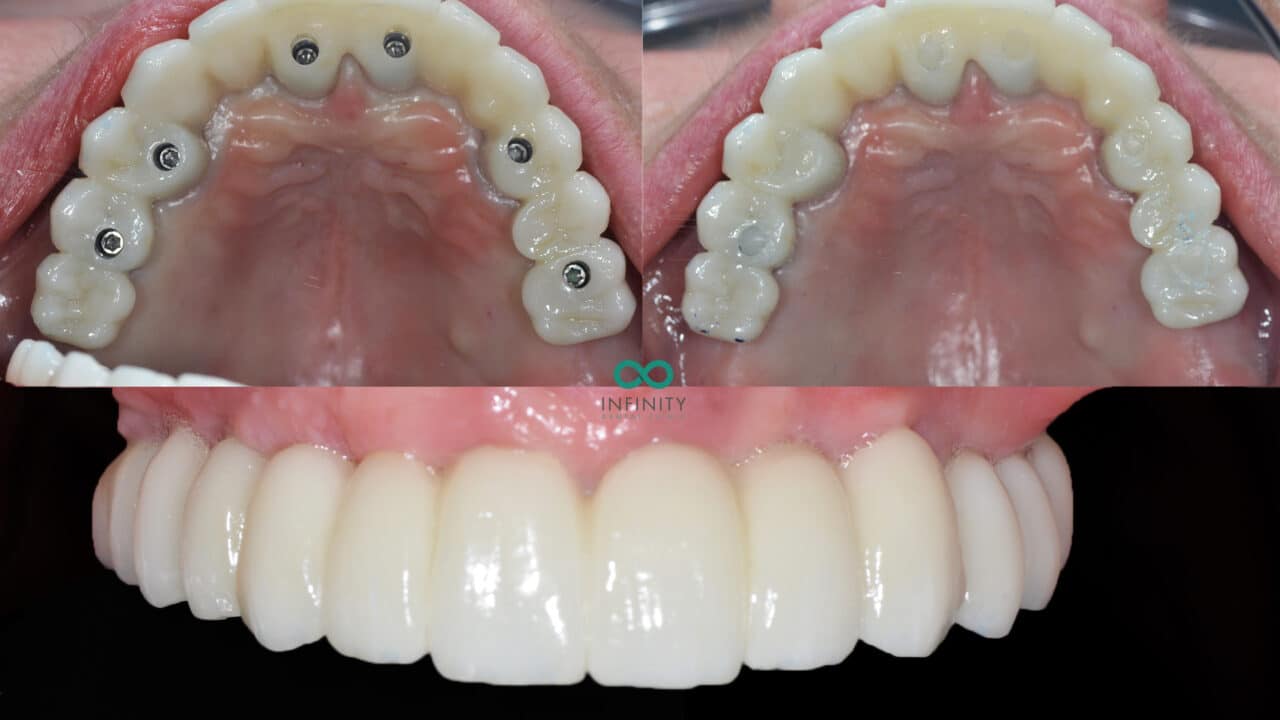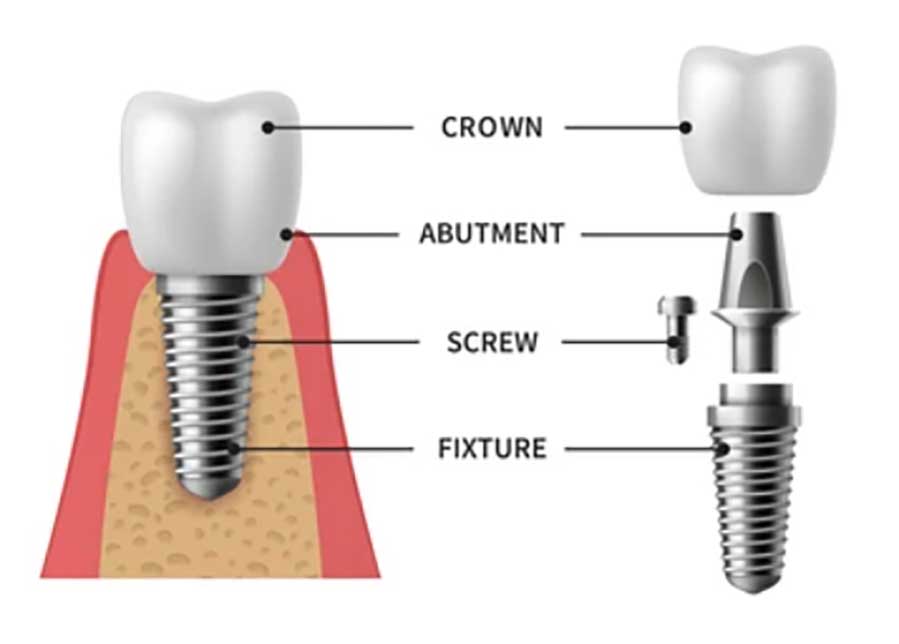Mono Implants Galena OH Full Mouth Dental Implants: An In-Depth Overview
Dental Care Associate Johnstown OH Understanding Dental Implants: A Comprehensive Guide
Dental implants have emerged as a well-liked choice for individuals in search of a long-term resolution to tooth loss. One essential aspect of understanding dental implants entails their impact on adjacent teeth. This is especially necessary for guaranteeing the health and longevity of the whole dental structure.
When a dental implant is placed, it mimics the operate of a natural tooth root. By doing so, it helps keep the integrity of the surrounding bone structure. Natural teeth depend on a balanced, interconnected system for assist, and dental implants can contribute positively to that dynamic. The stability provided by the implant permits for higher distribution of chew forces, which can prevent undue stress on adjacent teeth.
Orthodontics Johnstown OH Understanding the Cost of Dental Implants (2024 Edition)
In cases where a tooth is missing, the neighboring teeth could shift into the vacant space. This shifting can lead to misalignment and numerous different issues. By placing a dental implant, the danger of this shifting is lowered, because the implant acts as a placeholder that preserves the natural alignment of surrounding teeth. This preventive impact is crucial for long-term oral health and function.
Another essential consideration is bone loss. When a tooth is misplaced, the jawbone within the space can begin to deteriorate due to an absence of stimulation. Dental implants assist prevent this bone loss by offering the necessary stimulation to the jawbone, very similar to a natural tooth root would. This preservation of bone not only supports the implant itself but in addition contributes to the steadiness of adjacent teeth.
The sort of material used in dental implants, sometimes titanium, has a singular property of osseointegration, which means it fuses with the bone over time. This integration offers a sturdy foundation for the synthetic tooth while making certain that the implant doesn’t negatively affect surrounding buildings. As the implant integrates, it creates an environment that contributes positively to the health of the adjacent teeth.

Regular dental check-ups play a vital role in monitoring the impact of dental implants on adjacent teeth. Professional assessments might help establish any issues which will come up, guaranteeing prompt treatment and maintaining the health of the whole dental arch. These evaluations would possibly include X-rays to check for bone density and the overall condition of the implant and surrounding teeth.
Dental Care Sunbury OH Frequently Asked Questions About Dental Implants
Oral hygiene practices are vital for individuals with dental implants. Proper brushing and flossing habits not solely contribute to the longevity of the implant but in addition ensure that adjacent teeth stay wholesome. Food particles and plaque that accumulate around the implant can cause problems, together with peri-implantitis, an inflammatory condition that can have an effect on surrounding teeth and tissues.
The positioning of dental implants can affect the health of adjacent teeth. If an implant is positioned at an angle or not properly aligned, it may result in increased pressure on neighboring teeth. This misalignment may cause wear and tear on adjacent enamel, doubtlessly leading to cavities or different dental issues. Therefore, the ability and expertise of the dentist performing the implant process are paramount in achieving a profitable end result.
In some instances, additional procedures could additionally be essential to organize the surrounding area for an implant. Bone grafting or sinus lifts may help create a better environment for the implant. While these procedures are geared toward enhancing the positioning for the implant, additionally they serve to protect the health of adjacent teeth by making a more stable basis.
Dental Care Associate Pataskala OH Single-Tooth Implants: Everything You Need to Know

As dental know-how evolves, advancements in implant strategies lead to higher outcomes. Improved imaging methods and computer-aided design allow for extra precise placements that decrease risk to adjacent teeth. With these advancements, the chance of problems that could come up from improperly placed implants diminishes considerably.
Post-operative care also performs a critical function in ensuring that adjacent teeth stay unaffected. Patients must adhere to the dentist's directions regarding food plan, oral hygiene, and follow-up visits. Neglecting these guidelines may lead to issues that impact not solely the implant but also the neighboring teeth.
Dental Clinic Alexandria OH The Benefits of Dental Implants: Why Choose Them?
In conclusion, dental implants, when positioned accurately and cared for correctly, have the potential to boost the health of adjacent teeth somewhat than detract from it. They preserve alignment, stimulate bone development, and supply a safe basis that helps the complete dental structure. Understanding how dental implants affect adjacent teeth emphasizes their significance as a long-term tooth replacement resolution. With steady developments in know-how and methods, the integration of dental implants into restorative dentistry is becoming increasingly successful, guaranteeing wholesome and practical smiles for years to return.

- Dental implants prevent adjacent teeth from shifting into the hole created by a missing tooth, serving to to maintain correct alignment within the mouth.
- The rebuilding of the jawbone through an implant can stimulate surrounding teeth and keep them healthy by offering essential bone density which may in any other case diminish.
- Adjacent teeth profit from the stabilization that dental implants present, reducing the risk of wear and tear and tear from misalignment during chewing.
- Implants can shield adjacent teeth by appearing as a framework, which might distribute chunk forces evenly across the dental arch instead of putting undue stress on neighboring teeth.
- When placed accurately, dental implants decrease the risk of gum disease which can have an effect on adjacent teeth by maintaining a clean and healthy gum line.
- The presence of an implant can facilitate an improved oral hygiene routine, as it eliminates the need for bridgework that would lure meals particles round adjacent teeth.
- Regular dental check-ups can reveal how properly the implant integrates with surrounding constructions, guaranteeing ongoing health for adjacent teeth.
- Implants can prevent the natural strategy of bone resorption that happens after tooth loss, positively impacting the soundness and longevity of adjacent teeth.
- The use of dental implants would possibly cut back the need for extra invasive procedures sooner or later, offering a long-term answer that maintains the structure of the whole dental arch.
- Successful integration of an implant into the dental arch enhances general oral perform, often resulting in improved confidence and oral health for adjacent teeth.undefinedHow do dental implants affect adjacent teeth?
What influence do dental implants have on the alignment of adjacent teeth?
Dental implants generally prevent the shifting of adjacent teeth, helping to keep up proper alignment. This stability can cut back the chance of growing chew issues over time.
Can dental implants cause damage to close by Go Here teeth?
When positioned appropriately by a professional skilled, dental implants shouldn't damage adjacent teeth - Smile Care Granville OH. However, improper placement or insufficient planning might lead to issues
Dentist Condit OH Frequently Asked Questions About Dental Implants
Do dental implants require any special care regarding adjacent teeth?
Maintaining good oral hygiene is crucial. Surrounding teeth must be brushed and flossed often, and routine dental check-ups will assist ensure that both the implants and adjacent teeth stay healthy.

Will great post to read dental implants impression the health of my surrounding teeth?
Dental implants can improve the health of surrounding teeth by distributing chew forces evenly, lowering put on and tear. Additionally, they can prevent bone loss within the jaw, which might affect adjacent teeth.
Dental Implants Columbus OH Dental Implant Types: Choosing the Right Solution
Are there any long-term effects of dental implants on nearby teeth?
Long-term, dental implants may help protect the health of adjacent teeth by preventing shifting and potential gum issues, in the end contributing to raised oral health overall. - Pediatric Dentist Pataskala OH
Can gum problems arise round adjacent teeth after getting implants?
If proper dental care is uncared for, gum issues may develop round both the implants and adjacent teeth. Following post-operative care directions is essential to reduce these risks.
Premier Dental Sunbury OH Affordable Dental Implants: Finding the Best Value
How do dental implants evaluate to bridges by way of adjacent teeth?
Dental implants are typically useful as they don’t require alteration of adjacent teeth, not like bridges, which necessitate reshaping of close by teeth for assist. (Dental Care Associate Granville OH)
Can I still get cavities in adjacent teeth if I have dental implants?
Yes, adjacent teeth can still develop cavities if not properly cared for. Dental implants themselves cannot get cavities, however they require vigilant hygiene practices to guard surrounding natural teeth.
What is the success rate Related Site of dental implants in relation to surrounding teeth?
The success rate of dental implants is excessive, nevertheless it largely depends on the standard of the process and ongoing care. Well-maintained implants typically result in better outcomes for adjacent teeth as well.